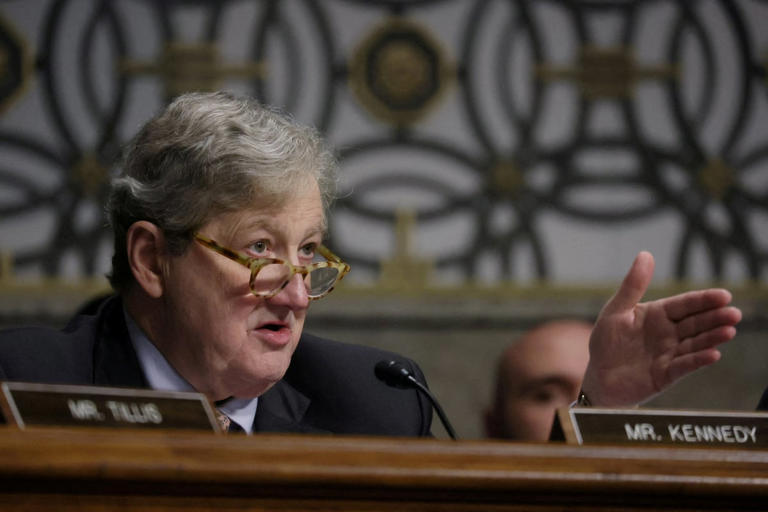Louisiana Senator John Kennedy is facing mounting demands for censure following inflammatory remarks directed at Maya Berry, Executive Director of the Arab American Institute, during a Senate Judiciary Committee hearing on hate crimes. Kennedy accused Berry of supporting Hamas and UNRWA, the UN agency aiding Palestinian refugees, despite her clarifying her stance against Hamas. Kennedy’s heated interruptions culminated in the offensive comment, “You should hide your head in a bag.”
Anti-Muslim Violence
Berry condemned Kennedy’s rhetoric, which mirrors the dangerous surge in Islamophobic hate crimes. Arab and Muslim advocacy groups have pointed to rising anti-Muslim violence, including recent attacks on Palestinian-Americans. One incident involved the tragic stabbing of 6-year-old Wadea Al-Fayoume in Illinois, and another left three Palestinian students shot in Vermont.
Berry described Kennedy’s behavior as “disappointing,” highlighting the urgent need to address the rising wave of hate speech and violence. Kennedy’s offensive statement has intensified calls for formal censure, with critics denouncing his Islamophobic rhetoric as harmful and divisive.
Anti-Muslim Hate Crimes
Advocates now demand that the Senate hold Kennedy accountable for his remarks, framing this moment as crucial to confronting the rise in anti-Muslim hate in the U.S.
You may be interested
The backlash against Senator John Kennedy’s comments comes at a time of heightened sensitivity around Islamophobic rhetoric, especially given the sharp increase in hate crimes targeting Muslim and Arab-American communities. Organizations like the Arab American Institute and the Council on American-Islamic Relations (CAIR) have consistently highlighted how inflammatory statements from public officials contribute to the normalization of hate and discrimination.
U.S. foreign policy on Israel and Palestine
Berry’s testimony came amidst rising violence against Palestinian-Americans, reflecting the volatile political climate surrounding U.S. foreign policy on Israel and Palestine. Incidents like the fatal stabbing of Wadea Al-Fayoume in Illinois and the Vermont shooting of three Palestinian students have drawn significant attention to the dangerous consequences of hate-filled speech. These attacks serve as tragic reminders of how violent rhetoric can fuel real-world violence.
Calls for Senator Kennedy’s censure are not without precedent. Previous cases, such as when the Senate censured Senator Joseph McCarthy in the 1950s, demonstrate that formal reprimands can serve as an important mechanism to hold elected officials accountable for actions that violate democratic norms or promote hate.
Islamophobia
Many advocates now argue that failing to censure Kennedy sends a harmful message, effectively tolerating Islamophobia in the nation’s highest institutions. Advocacy groups, scholars, and political figures have stressed that a Senate censure would be a step toward addressing the root causes of hate crimes and the broader rise in anti-Muslim sentiment in the U.S.
The growing momentum for action against Kennedy highlights the tension between free speech and responsible rhetoric in public office. The incident also raises deeper questions about how hate is both fostered and countered in political discourse today.
To learn more about these issues, advocacy groups like CAIR and the Arab American Institute offer resources on how hate speech contributes to violence, and what steps can be taken to challenge it.
As the controversy continues, the Senate may be forced to address the balance between free speech and hate speech. This will not only test the institution’s commitment to democratic values but also set a precedent for how similar future incidents may be handled.
Sources:












